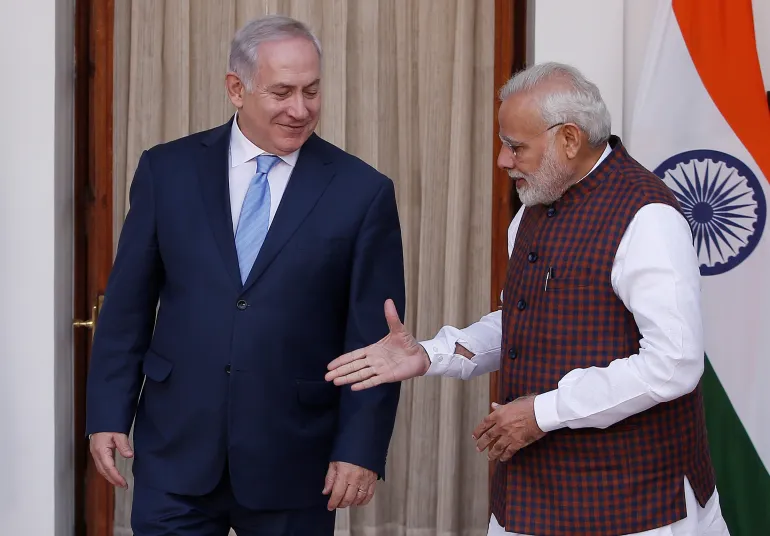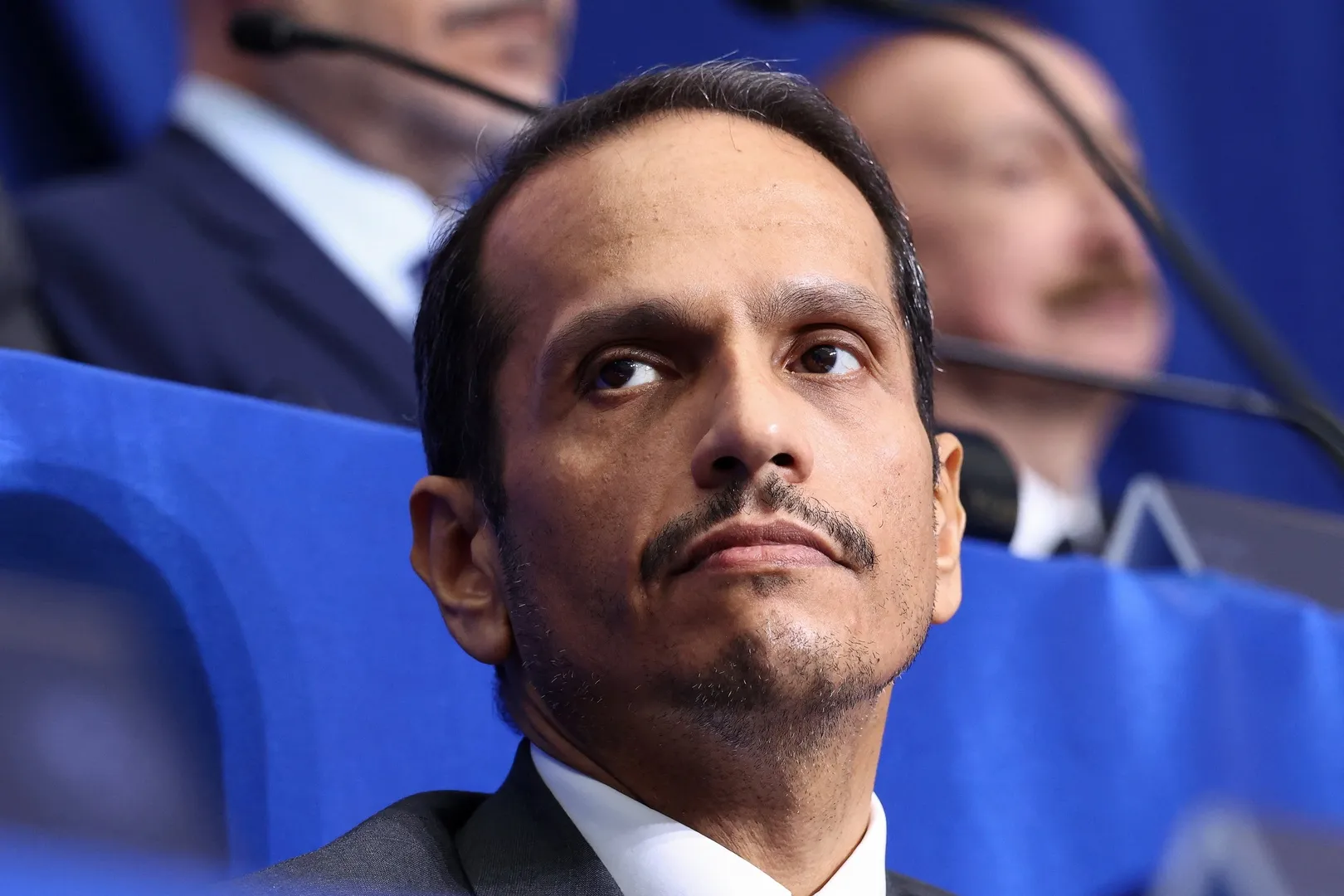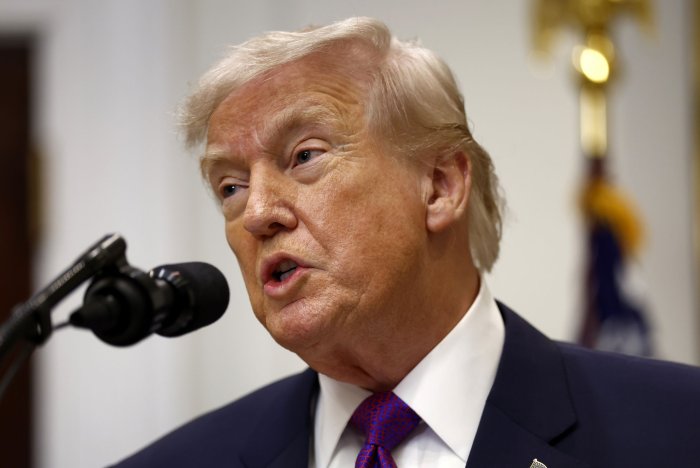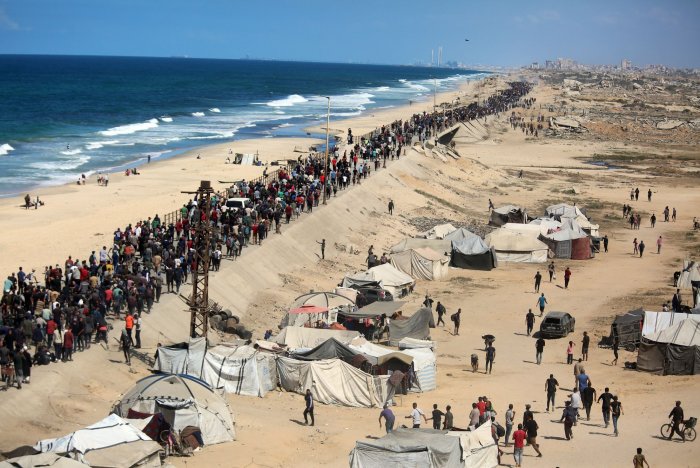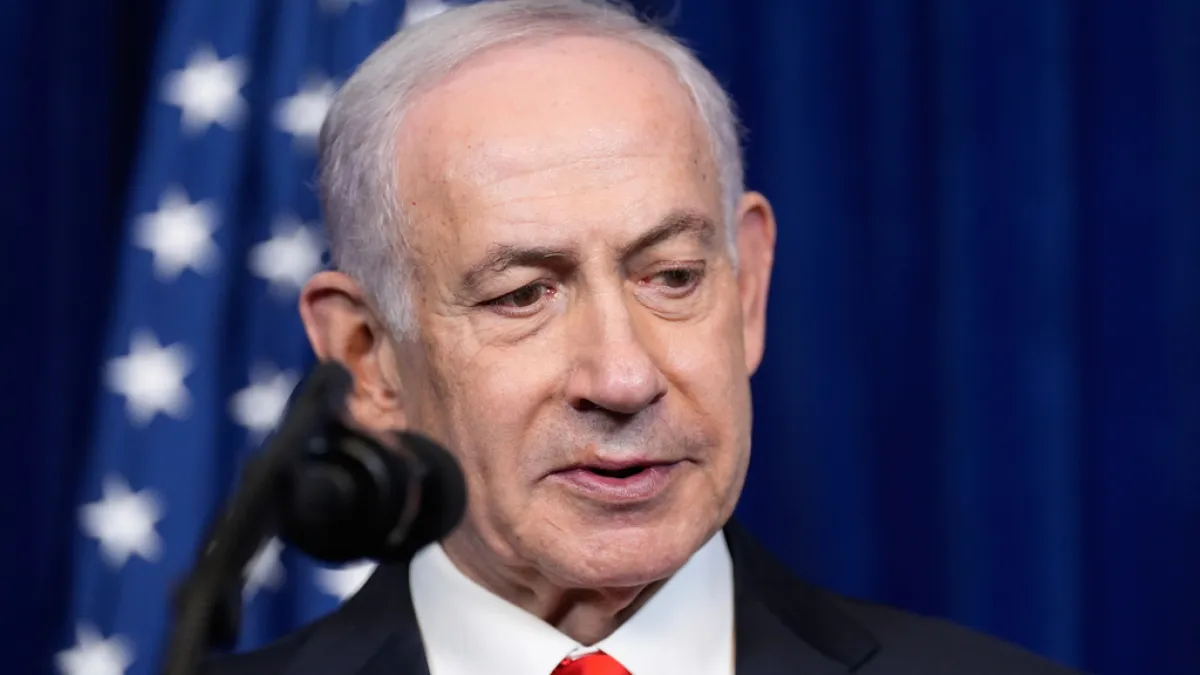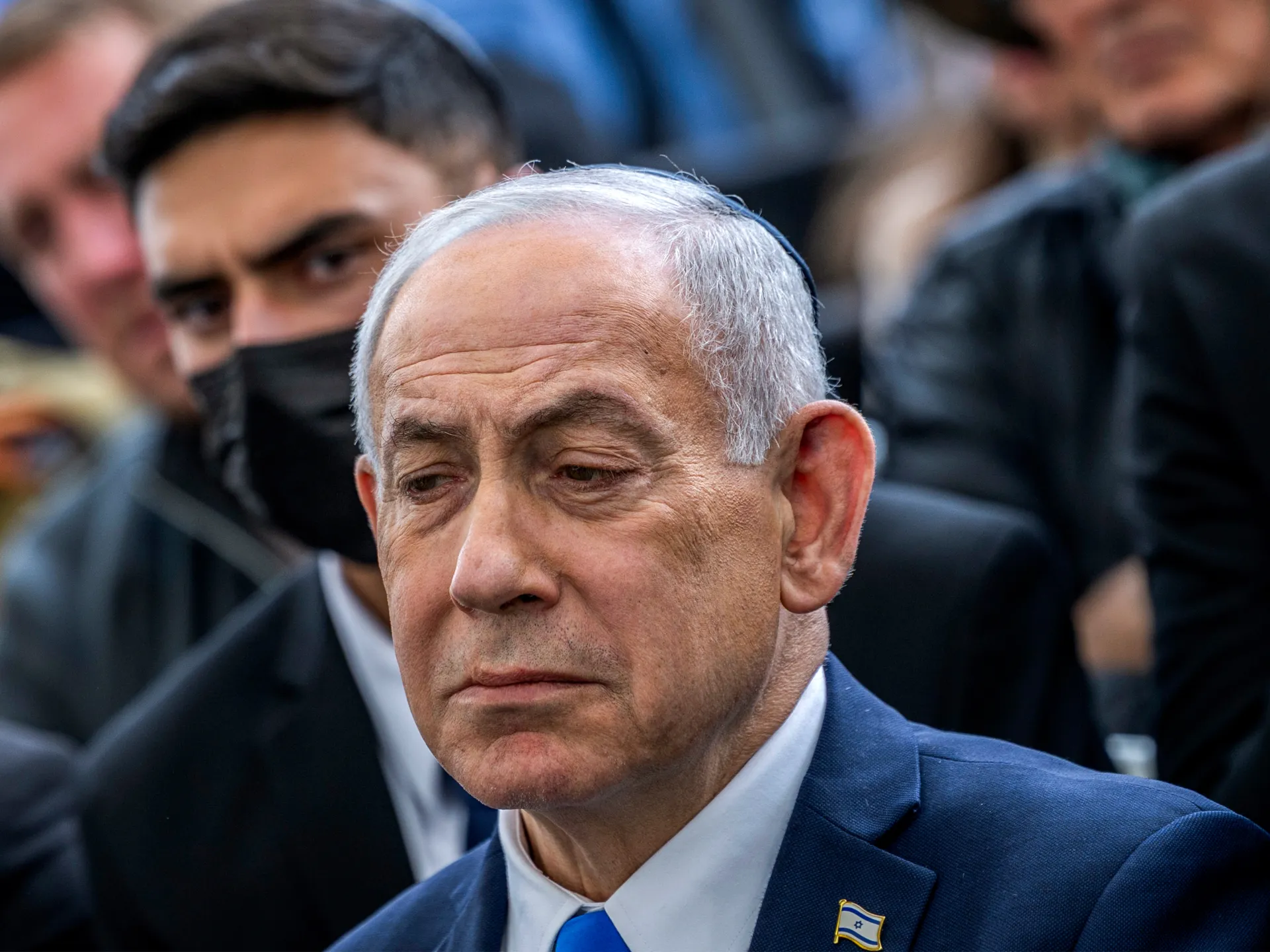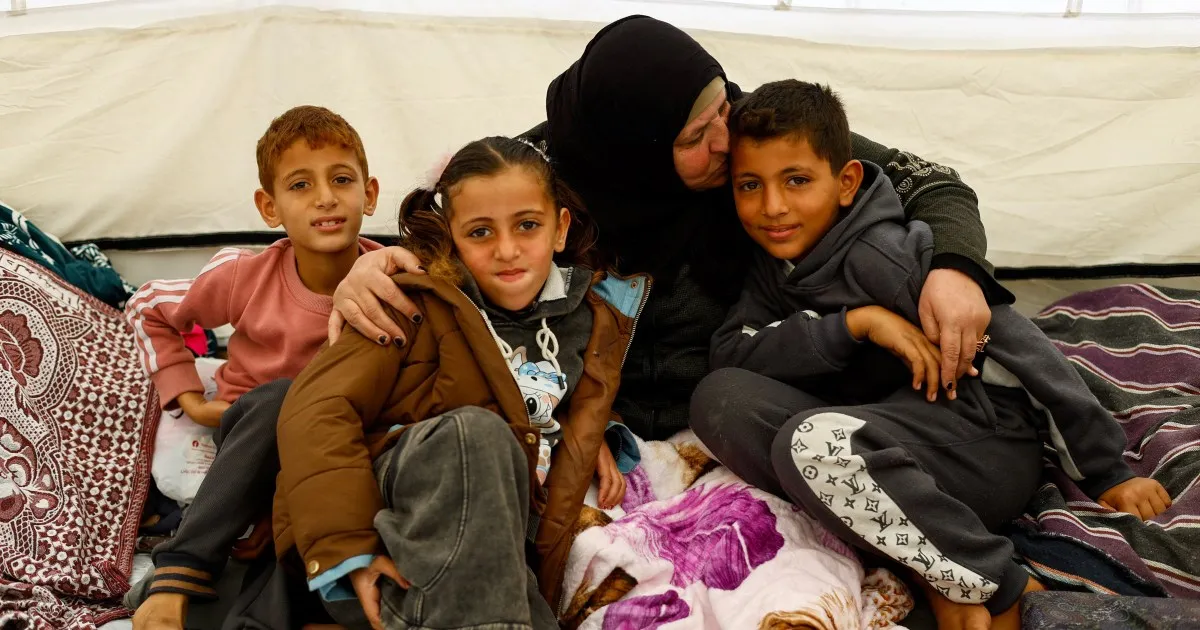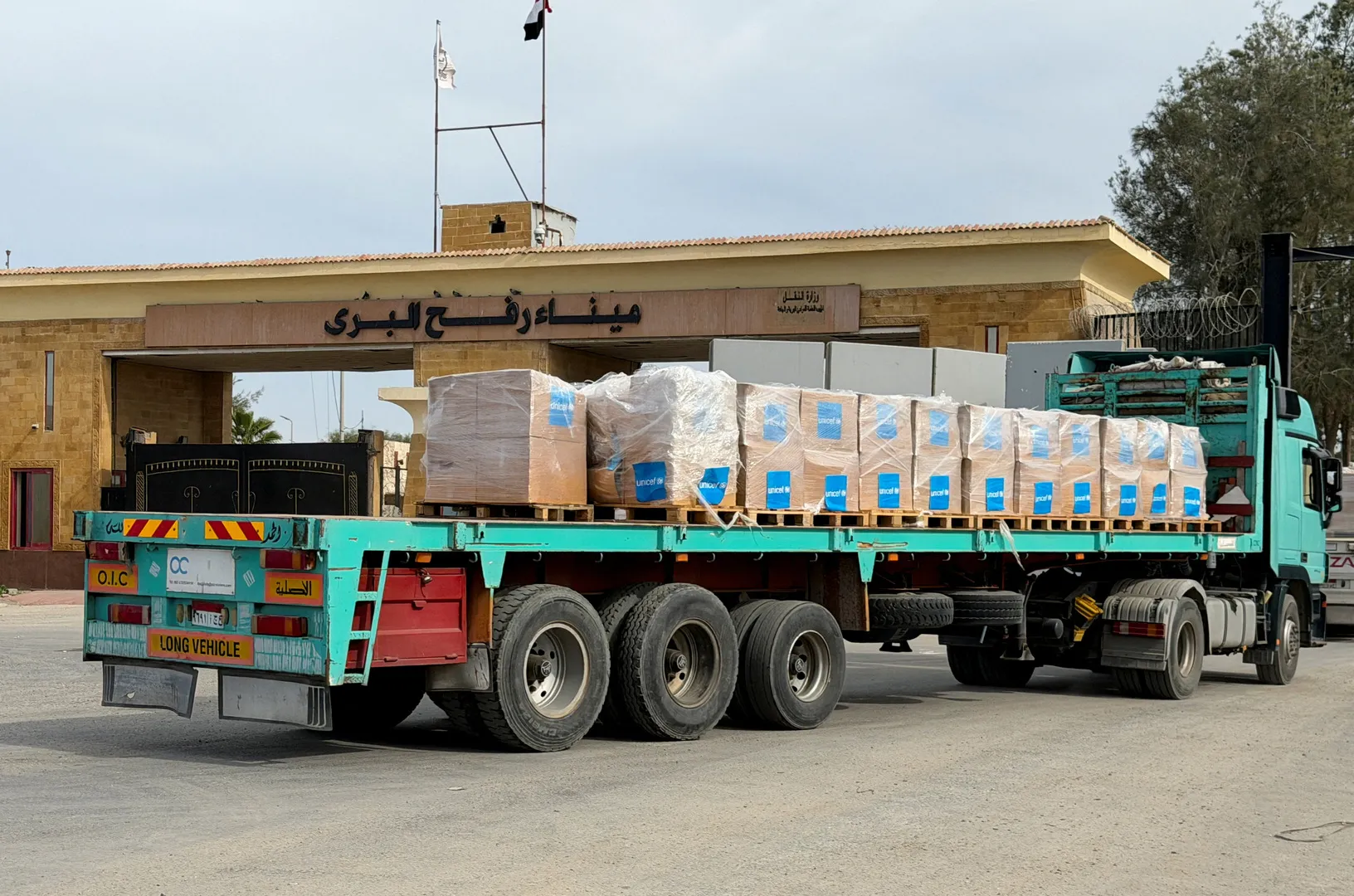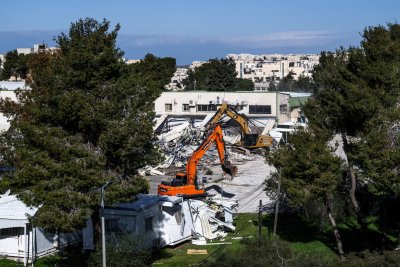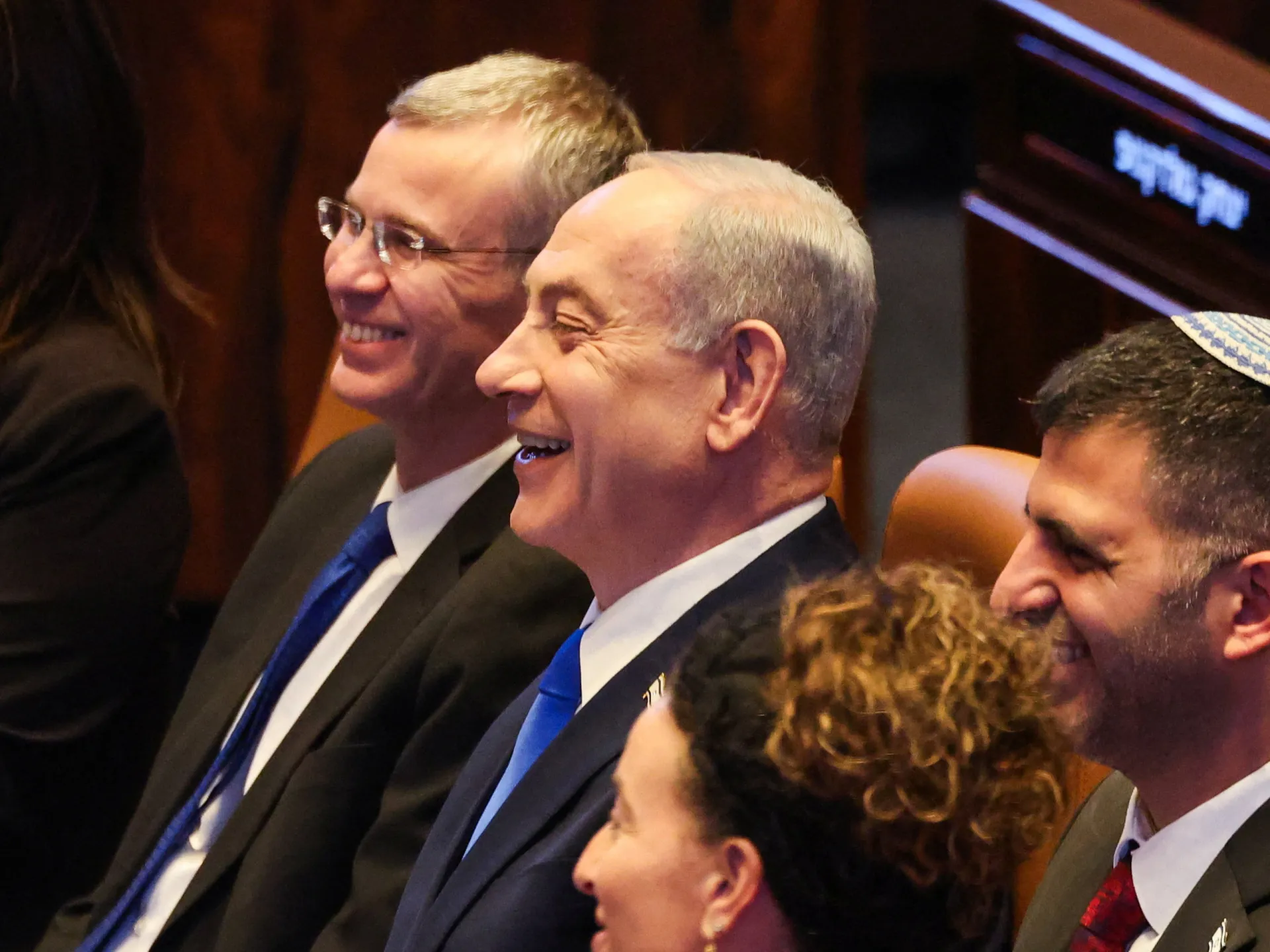How Modi ‘broke down walls’ between India, Israel – at Palestine’s expense | Narendra Modi
New Delhi, India – As Indian Prime Minister Narendra Modi emerged from his plane at Ben Gurion airport outside Tel Aviv on July 4, 2017, his Israeli counterpart, Benjamin Netanyahu, waited for him at the other end of the red carpet laid out on the tarmac.
Minutes later, the leaders hugged. Speaking at the airport, Modi said his visit was a “path-breaking journey” – it was the first time an Indian prime minister had visited Israel. Netanyahu recalled their first meeting in New York in 2014, where, he said, “we agreed to break down the remaining walls between India and Israel”.
Nine years later, as Modi prepares to fly to Israel on February 25 for his second visit, he can largely claim to have accomplished that mission, analysts say. A relationship that was once frowned upon in India, and then carried out clandestinely, is now one of New Delhi’s most public friendships. Modi has frequently described Netanyahu as a “dear friend”, despite the International Criminal Court having issued an arrest warrant in late 2024 for the Israeli premier over alleged war crimes carried out during Israel’s genocidal war on Gaza.
Indian diplomats and officials have justified the country’s pivot towards Israel as a “pragmatic approach” – Israel, with its tech and military expertise, has too much to offer to be ignored, they argue – balanced by efforts from New Delhi to strengthen ties with its Arab allies.
Yet, it has come at a cost, analysts say: to Palestine, and India’s relationship with it, and, according to some experts, to India’s moral credibility.
“The so-called realist turn of India has cost its moral power, which it used to enjoy in the Global South,” said Anwar Alam, a senior fellow with the Policy Perspectives Foundation think tank in New Delhi.
Amid an ongoing war in the Palestinian territory, Modi’s visit “amounts to legitimising the apartheid Israeli state”, Alam told Al Jazeera.

An ideological alliance
India was a staunch advocate for Palestine in the post-colonial world order, with major leaders backing Palestinian independence. In 1947, India opposed the United Nations plan to partition Palestine. And four decades later, in 1988, India became one of the first non-Arab states to recognise Palestine.
The end of the Cold War – India leaned towards the Soviet Union despite officially being non-aligned – forced a change in New Delhi’s calculations. Alongside an outreach to the United States, India also established diplomatic relations with Israel in January 1992.
Since then, defence ties have anchored the relationship, which has also expanded on other fronts in recent years.
Modi’s rise to power in India in 2014 proved to be the catalyst for the biggest shift in relations. Modi’s Hindu nationalist Bharatiya Janata Party (BJP) has an ideology rooted in the vision of making India a Hindu nation, a natural homeland for Hindus anywhere in the world – an approach that mirrors, in many ways, Israel’s view of itself as a Jewish homeland. Both Modi and Israel view “Islamic terrorism”, which critics say is also shorthand for justifications needed to pursue broader anti-Muslim policies, as major threats.
Under Modi, India has become Israel’s largest weapons buyer. And in 2024, as Israel waged its war on Gaza, Indian weapons firms sold Israel rockets and explosives, according to an Al Jazeera investigation.
Ahead of Modi’s upcoming visit, the two countries signed a memorandum of understanding that aims to further deepen defence ties, with India exploring the joint development of anti-ballistic missile defence with Israel. In Jerusalem, Modi is scheduled to address the Knesset, Israel’s parliament.
“Modi’s address is special because of how it underlines the scale of the shift in relations under the Bharatiya Janata Party towards an overtly pro-Israel policy,” Max Rodenbeck, project director at the Washington-based Crisis Group’s Israel-Palestine department, told Al Jazeera.
But Modi’s visit is also personal for Netanyahu, Rodenbeck said. Israel is months away from a national election that is, in effect, a referendum on Netanyahu’s government – from the intelligence failures that enabled the October 7 attack by Palestinian groups to the war on Gaza that followed, as well as his attempts to weaken judicial independence through reforms.
The visit appears “as almost a personal favour to Netanyahu by boosting his image as an international statesman just as Israeli election campaigning is getting underway”, Rodenbeck said.
While several Western leaders have visited Israel since it began its genocidal war on Gaza in October 2023, few leaders from the Global South have made the trip.
At a time when the Gaza war has shrunk the set of countries willing to be seen as Israel’s friends, especially among emerging economies, Modi’s visit is significant.
Israel does not “have many friends” globally at the moment, said Kabir Taneja, the executive director of the Middle East office at the Observer Research Foundation, a New Delhi-based think tank. “So India is playing that role,” he added. “[Modi’s visit] sort of shows that Israel is not fully isolated.”

The July 2017 visit
In many ways, Modi’s visit to Israel this week will look to build on his July 2017 trip, which was a watershed moment in the bilateral ties, analysts note.
No Indian Prime Minister had previously visited Israel, but even lower-level diplomats would, until then, pair their Israel visits with parallel engagements in the Palestinian territory.
Modi broke with that policy. He did not visit Palestine in 2017, only making a trip there in 2018, by which time he had already also hosted Netanyahu in New Delhi. It had also been the first visit by an Israeli premier to India.
The 2017 Modi visit has been under scrutiny recently. An email released by the US Justice Department as part of the Jeffrey Epstein files showed that the late disgraced financier had advised a billionaire close to Modi during his trip.
After the visit on July 6, Epstein, a convicted sex offender, had emailed an unidentified individual he referred to as “Jabor Y”, saying: “The Indian Prime minister modi took advice. and danced and sang in israel for the benefit of the US president. they had met a few weeks ago.. IT WORKED. !”
India’s Ministry of External Affairs has dismissed these claims as the “trashy ruminations” of a convicted criminal.
Nonetheless, Modi’s visit to Israel solidified the bilateral relationship. Trade between the two nations has grown from $200m in 1992 to more than $6bn in 2024.
India is still Israel’s second-largest Asian trading partner after China in goods, dominated by diamonds, petroleum, and chemicals. India and Israel signed a Bilateral Investment Treaty (BIT) in September last year and have both been looking to close negotiations on a free trade deal.
At the same time, people-to-people ties have grown as well. After Israel banned Palestinians from working in the country following the Hamas-led attack on October 7, 2023, thousands of Indians lined up to work in Israeli construction companies.
“India and Israel have a fairly deep strategic and economic relationship that has been flourishing since Prime Minister Modi came to office,” said the Observer Research Foundation’s Taneja.
Modi was also among the first world leaders to condemn the Hamas-led attack and throw India’s support behind Israel.
“It really, really feeds into India’s posture against terrorism,” Taneja said about the India-Israel ties. “Israel is a country that India sees facing similar crisis when it comes to terrorism.”
India accuses Pakistan of sponsoring armed attacks on its territory and in Indian-administered Kashmir. Pakistan has accepted that its nationals have, in some instances, been behind these attacks, but has rejected accusations that it has trained or financed the attackers.

Over the horizon, a different Middle East?
Despite its close ties with Israel, New Delhi under Modi has not completely abandoned its position on the Palestinian cause, calling for a two-state solution and peace through dialogue. But it has been increasingly hesitant to criticise Israel over its war crimes in the occupied Palestinian territory.
India’s historical support for the Palestinian cause is rooted in its pivotal role in the non-alignment movement, the Cold War-era neutrality posture adopted by several developing nations. Even before India gained independence, the leader of its freedom struggle, Mahatma Gandhi, decried the “imposition of Jews over Arabs” through the creation of Israel.
India now no longer calls its approach non-alignment, instead referring to it as “strategic autonomy”.
“The Middle East is the only geography where this policy actually functions, and also provide[s] dividend[s],” Taneja told Al Jazeera. “India has good relations with Israel, Arab powers and Iran alike. One of the reasons [it works is] because India does not step into regional conflicts and confrontations.”
But under pressure from US President Donald Trump, India has stopped buying oil from Iran and taken steps to end its work on developing the strategically significant Chabahar port, which New Delhi viewed as a gateway into landlocked Central Asia and Afghanistan.
Now, Trump is threatening to attack Iran. The US has amassed warships and jets near Iran, even as Washington and Tehran continue to engage in diplomatic talks.
“I suspect India may be looking over the horizon to a Middle East where Iran has suffered heavy attack from the US and Israel, and no longer projects power in the region. In these circumstances, Israel will emerge as something of a regional hegemon,” said the Crisis Group’s Rodenbeck.
“India is perhaps positioning itself to benefit. Also, Modi sees Israel as influential in Washington, and may hope that friendliness to Israel wins points with Congress and Trump, which India badly needs.”
